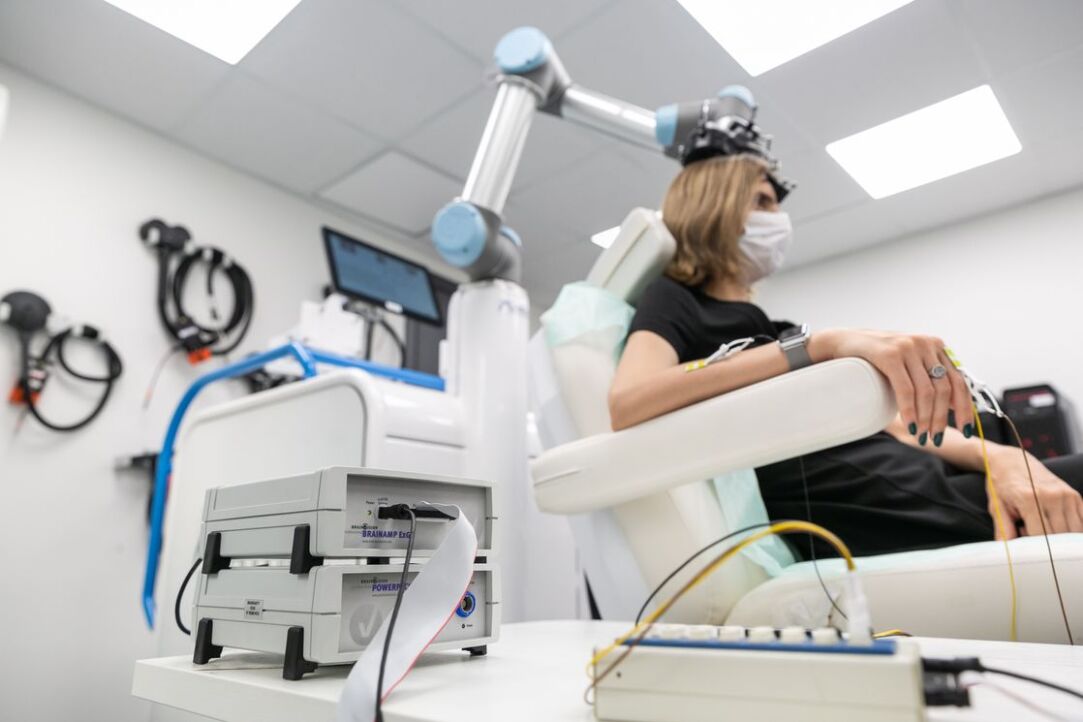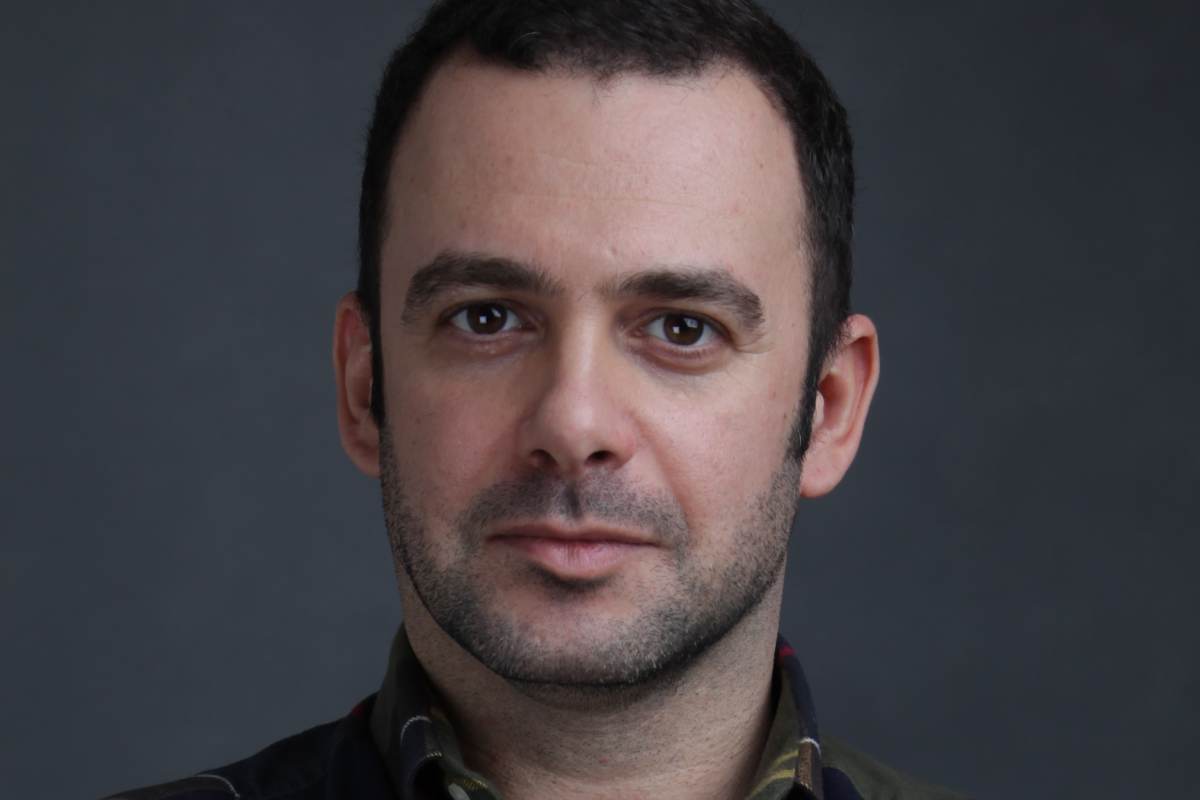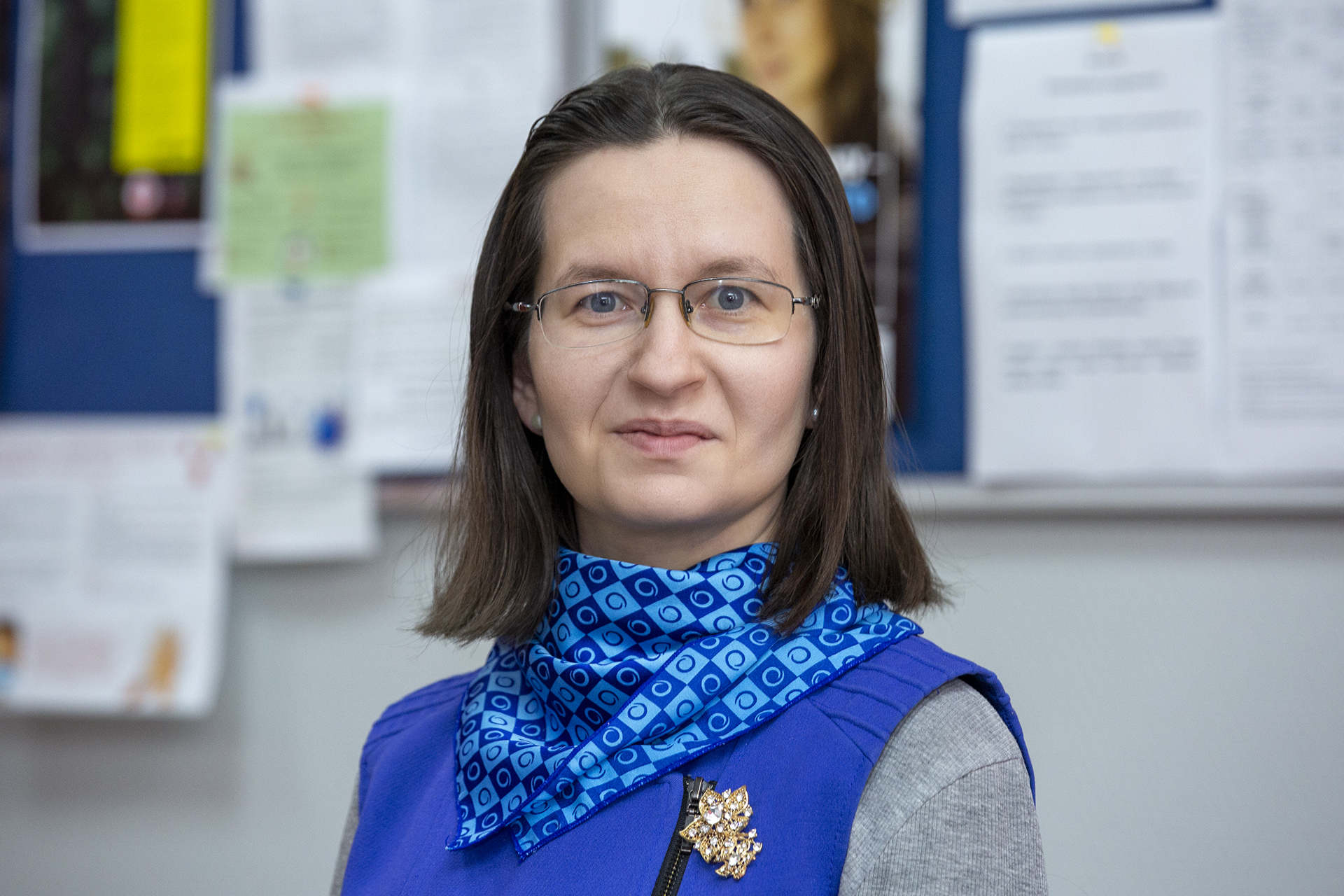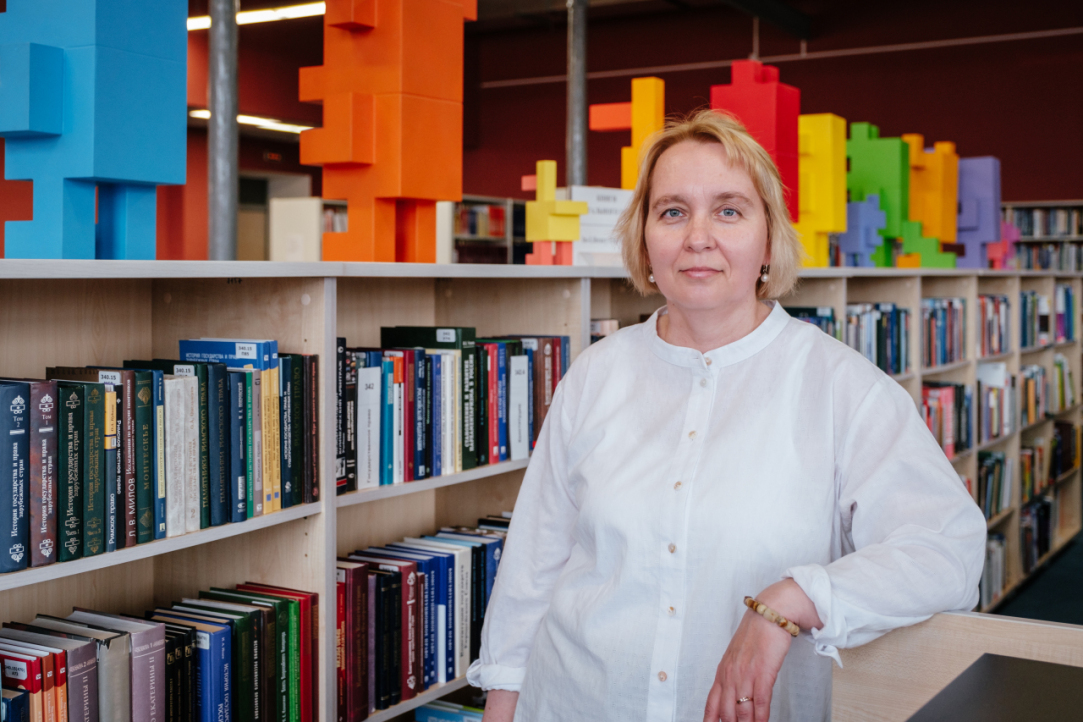Leading HSE University Scientists to Receive Grants from Ideas Research Centre for Neuroscience Research

The Ideas Centre for Advanced Interdisciplinary Research has announced the results of its 2023 competition. Five leading neuroscientists will receive grants to open graduate positions for early-career researchers who want to work on solutions to fundamental problems in this area. Three of the competition winners are scientists from HSE University: Matteo Feurra (HSE University in Moscow), Anastasia Kolmogorova (HSE University in St Petersburg), and Sofia Kulikova (HSE University in Perm).
The competition for postgraduate positions is held annually as part of the long-term, ten-year ‘Brain’ programme of the Ideas Research Centre. Grant assistance will allow young scientists to conduct research under the scientific supervision of the competition winners. The grant allows each winner to attract a promising student capable of demonstrating high-level scientific results, as well as provide an aspiring graduate student with competitive working conditions for an extended period of time. In three years, 29 well-known scientists have passed the rigorous selection process and been named winners. During this time, 112 applications were submitted, including 24 this year.
The Ideas Centre for Advanced Interdisciplinary Research is a non-profit organisation that operates courtesy of voluntary donations. The centre’s mission is to develop science and technology through the creation and use of modern tools to support research and development. Its priority scientific direction is research in the field of neuroscience. Priority technology areas include blockchain, artificial intelligence, and virtual and augmented reality.

Matteo Feurra, Associate Professor at the Institute for Cognitive Neuroscience at HSE University in Moscow, head of the Motor Control Group at the HSE University Centre for Cognition and Decision Making
My research interests span various areas of cognitive neuroscience, with a particular focus on the sensorimotor system and memory processes. I specialise in the application of non-invasive brain stimulation techniques such as Transcranial Magnetic Stimulation (TMS) and Transcranial Electrical Stimulation (TES), including Transcranial Alternating Current Stimulation (tACS). As one of the pioneers in the field of tACS, I have contributed to advancing this novel technique with promising applications. Collaborating with national and international researchers, I have gained valuable insights into brain functions and have contributed to the development of innovative strategies for cognitive rehabilitation.
In addition to my research, I am dedicated to teaching and mentorship. At the Institute for Cognitive Neuroscience, I teach courses on Cognitive Neuroscience and Advanced Neuroimaging Techniques to master's students. I am also actively involved in mentoring undergraduate, postgraduate, and PhD students, fostering their growth in the field. The Institute for Cognitive Neuroscience at HSE provides an exceptional research environment and access to state-of-the-art methods, which greatly support my research endeavours.
I am thrilled to have secured a grant for our groundbreaking project on motor planning and kinematics!
Our research aims to unravel the mysteries of how the brain coordinates movements using cutting-edge techniques like transcranial magnetic stimulation (TMS). The grant will fund a talented PhD student who will delve into this fascinating field
With the funding, we'll investigate the neural underpinnings of motor planning and explore the potential for developing portable motor tracking devices. Imagine real-time feedback on your motor performance, assisting in rehabilitation, sports training, and aiding individuals with motor impairments in their daily lives.
Our PhD student will collaborate with top experts, present findings at prestigious conferences, and publish research papers, contributing to the scientific community's knowledge. This grant propels us toward our goal of revolutionising motor control research and enhancing human motor capabilities.
Together, we're shaping the future of neuroscience and transforming how we understand and optimise our movement abilities

Sofia Kulikova, Senior Research Fellow, Centre for Cognitive Neuroscience, HSE University in Perm
— It is no secret that a successful PhD thesis has several components: the personal qualities of the graduate student, the work of their supervisor, and a relevant, significant research topic. But do not forget that no matter how enthusiastic a graduate student is, no matter how exciting the topic of their research is, researchers still have their daily needs. It is important that graduate students have decent financial support that allows them to devote themselves entirely to scientific work.
This grant will ensure a decent salary for a postgraduate student who will be employed at the Centre for Cognitive Neuroscience at HSE University in Perm for the entire period of postgraduate studies—three years starting from autumn 2024. Thus, we already have three of the four dissertation components: a supervisor (me), an interesting and important research topic (‘Determining the structural and functional correlates of time discounting’), and financial support for the work of the graduate student.
The graduate student will have to figure out why our brain prefers a smaller, but momentary reward to a larger one, but deferred in time
Using various functional and structural approaches, such as EEG and MRI, we will try to distinguish between a brain that is ‘ready to wait’ and an ‘impulsive’ brain that is ‘easily tempted’.
According to the conditions of the Ideas Research Centre competition, during the year we must select a candidate who will be ready to work on their dissertation within the framework of this project. Applicants for this position must graduate from a master’s programme in 2024 and successfully pass the entrance examinations to HSE University’s graduate school and an interview with me as their future academic supervisor.

Anastasia Kolmogorova, professor at the School of Arts and Humanities, HSE University in St Petersburg
— The title of our project is ‘Oculomotor Correlates of Cognitive Processing of Emotional Texts in a Non-Native Language in Turkic-Russian Bilinguals’.
Our team has long been engaged in two topics: the specifics of the language ability of Turkic-Russian bilinguals and the perception of emotions in text data. In this application, we decided to combine them.
Previous studies have been related to the measurement of psycholinguistic parameters of Russian and Tuvan words in Tuvan-Russian bilinguals. In addition, we analyse how certain emotions are manifested in speakers through facial expressions, voice, and words and how large language models capture these manifestations; we create interfaces for labelling data on emotions.
The hypothesis that we will be testing as part of the grant was suggested by one of the pilot experiments: there were short texts on VK, where it was proposed to evaluate what kind of emotion was expressed and how strongly it was expressed. At first, people who speak only Russian participated, and then Tuva-Russian bilinguals. The scores differed significantly. For example, bilinguals did not find any emotions of shame in those texts that native Russian speakers rated as shameful.
We decided to continue the same experiment by expanding the cohort of study participants: we will take not only Tuva-Russian bilinguals, but also speakers of other Turkic languages of South Siberia
We will also apply the eye-tracking technology to observe the movement of the eyes of bilinguals when reading and evaluating emotional texts. This will allow us to understand what words such informants rely on when they decide on an emotion in the text. Further on, with the help of machine learning, we want to identify some typical strategies for such behaviour.
See also:
HSE Scientists Optimise Training of Generative Flow Networks
Researchers at the HSE Faculty of Computer Science have optimised the training method for generative flow neural networks to handle unstructured tasks, which could make the search for new drugs more efficient. The results of their work were presented at ICLR 2025, one of the world’s leading conferences on machine learning. The paper is available at Arxiv.org.
Neural Network Trained to Predict Crises in Russian Stock Market
Economists from HSE University have developed a neural network model that can predict the onset of a short-term stock market crisis with over 83% accuracy, one day in advance. The model performs well even on complex, imbalanced data and incorporates not only economic indicators but also investor sentiment. The paper by Tamara Teplova, Maksim Fayzulin, and Aleksei Kurkin from the Centre for Financial Research and Data Analytics at the HSE Faculty of Economic Sciences has been published in Socio-Economic Planning Sciences.
Larger Groups of Students Use AI More Effectively in Learning
Researchers at the Institute of Education and the Faculty of Economic Sciences at HSE University have studied what factors determine the success of student group projects when they are completed with the help of artificial intelligence (AI). Their findings suggest that, in addition to the knowledge level of the team members, the size of the group also plays a significant role—the larger it is, the more efficient the process becomes. The study was published in Innovations in Education and Teaching International.
Advancing Personalised Therapy for More Effective Cancer Treatment
Researchers from the International Laboratory of Microphysiological Systems at HSE University's Faculty of Biology and Biotechnology are developing methods to reduce tumour cell resistance to drugs and to create more effective, personalised cancer treatments. In this interview with the HSE News Service, Diana Maltseva, Head of the Laboratory, talks about their work.
Master’s Students of HSE, University of Campinas, and Tsinghua University Publish Joint Student Research Collection
Master’s students of the HSE ISSEK programme ‘Science, Technology and Innovation Management and Policy’ have released a joint research collection with the University of Campinas (Brazil) and Tsinghua University (China) titled ‘Being Innovative or Being on the Safe Side—Managing the Risk of Failure.’ The authors explore how organisations perceive risks and embrace innovation within different cultural contexts.
‘A Turn Away from Stereotypes’: Moscow Hosts ‘Researching the Deaf Community’ Conference
On October 17–19, 2025, the third annual interdisciplinary conference ‘Researching the Deaf Community 2025: on the Periphery of Attention’ took place at GES-2 House of Culture in Moscow. The event was organised with the participation of the HSE International Laboratory for Social Integration Research. HSE University Vice Rector Irina Martusevich addressed attendees at the opening ceremony.
Exploring the Mind: HSE Scientists Discuss Cognitive Technologies of the Future
Why we make irrational decisions, how the brain responds to fakes, and whether neural networks are capable of thinking—these were the topics discussed by early-career scientists of HSE University during the NAUKA 0+ science festival. The event brought together students and experts from various fields, united by a common goal—to deepen their understanding of the human brain and cognitive technologies.
HSE Researchers Assess Creative Industry Losses from Use of GenAI
Speaking at the IPQuorum.Music forum on October 15, Leonid Gokhberg, HSE First Vice Rector, and Daniil Kudrin, an expert at the Centre for Industry and Corporate Projects of HSE ISSEK, presented the findings of the first study in Russia on the economic impact of GenAI on creative professions. The analysis shows that creators’ potential losses could reach one trillion roubles by 2030.
International Dialogue on Urban Development: Dynamic Urbanism and Green Infrastructure
In September 2025, the HSE Faculty of Urban and Regional Development (FURD) hosted a delegation of leading scholars and urban development experts from China. Two seminars were held at the Shukhov Lab with the participation of Chinese colleagues: the first focused on green infrastructure, while the second explored the theme of dynamic urbanism. In addition, a meeting between the Chinese delegation and representatives of FURD took place at the university’s main building on Pokrovsky Bulvar. The participants discussed opportunities for expanding cooperation between universities and research centres.
HSE Tops the Ranking of Universities with the Best Employer Reputation
On October 16, 2025, Forbes Education published its list of the top 20 Russian universities with the best employer reputation in 2025. The ranking was based on a survey of leading Russian employers, who named the higher education institutions whose graduates they consider the most well-prepared and are most inclined to hire. HSE University took first place in the ranking.


